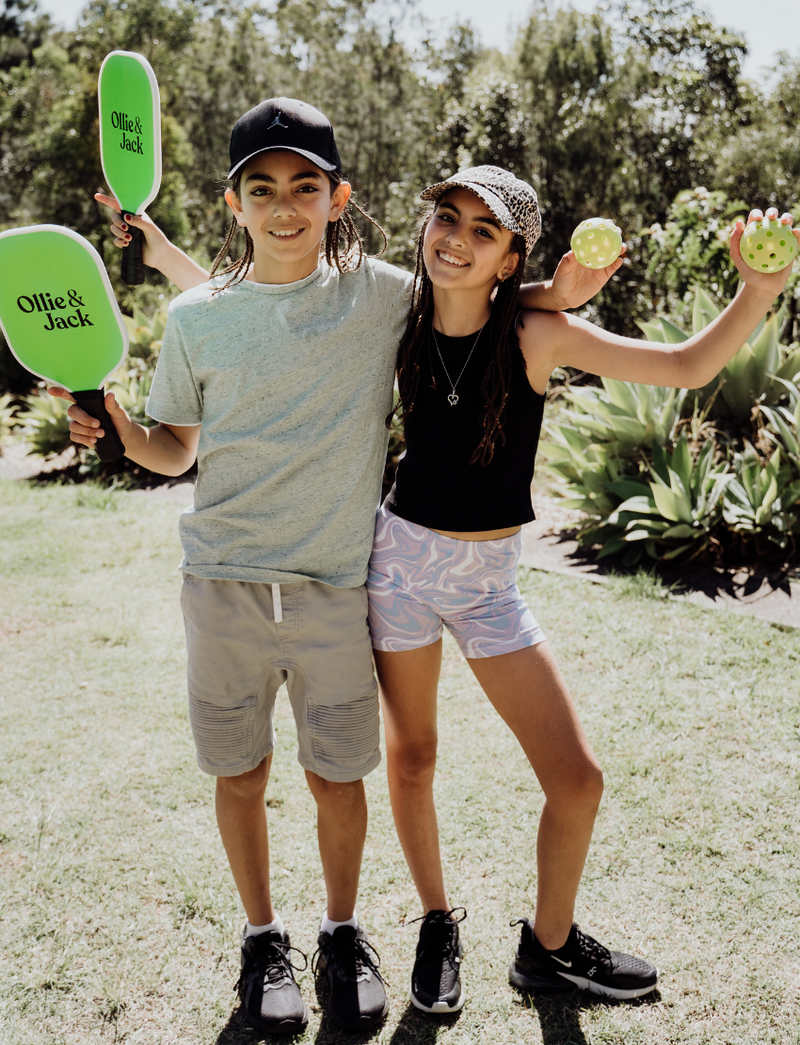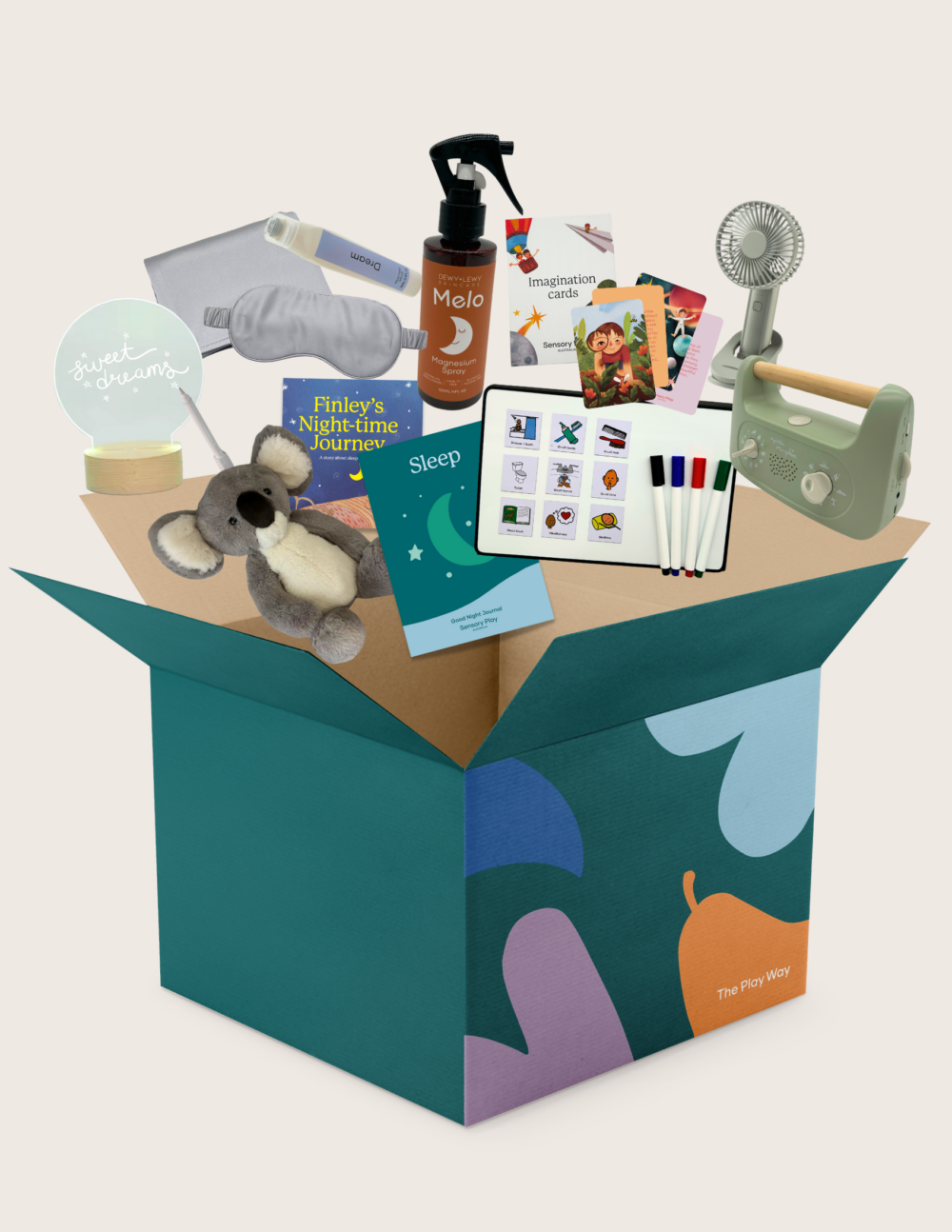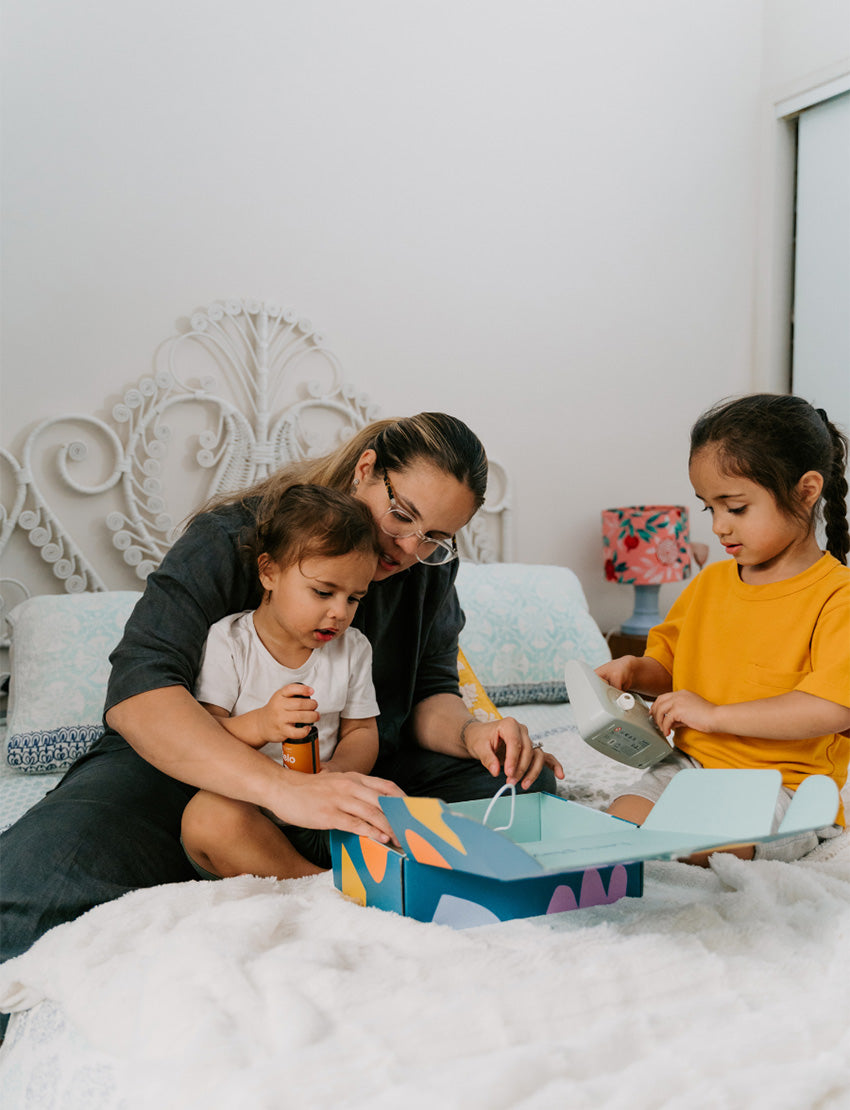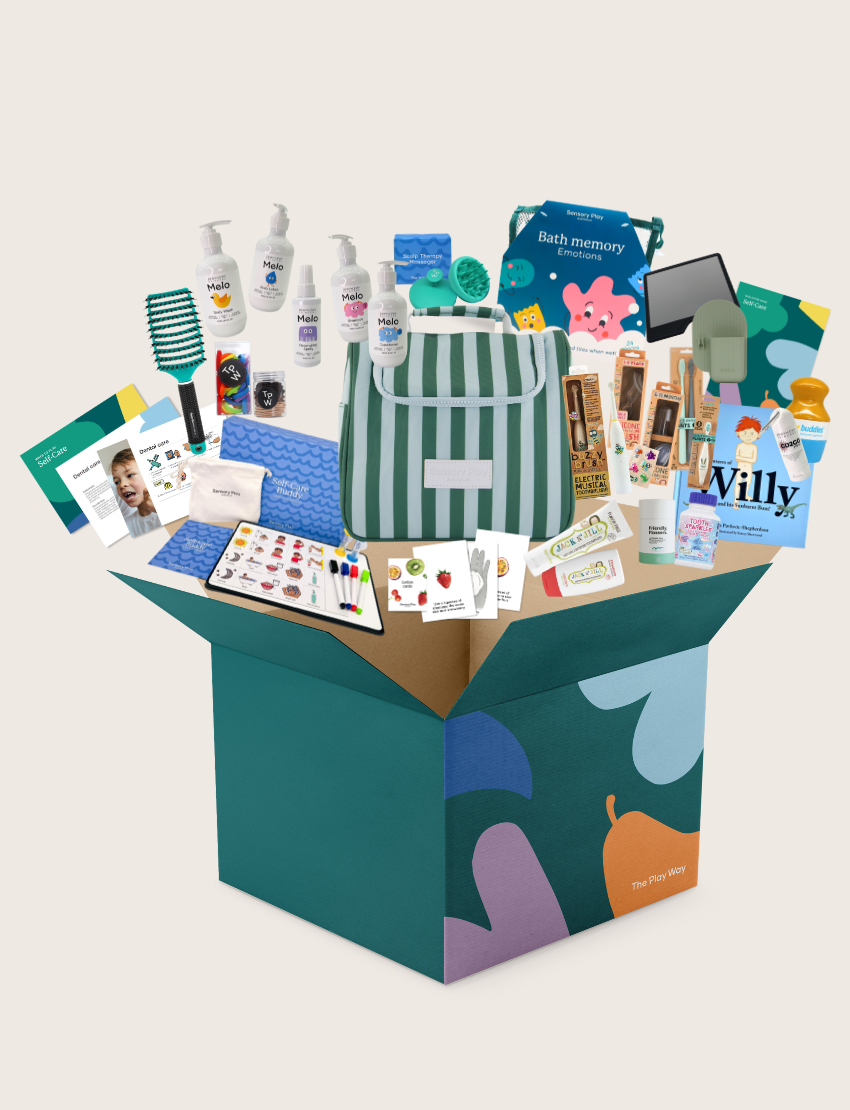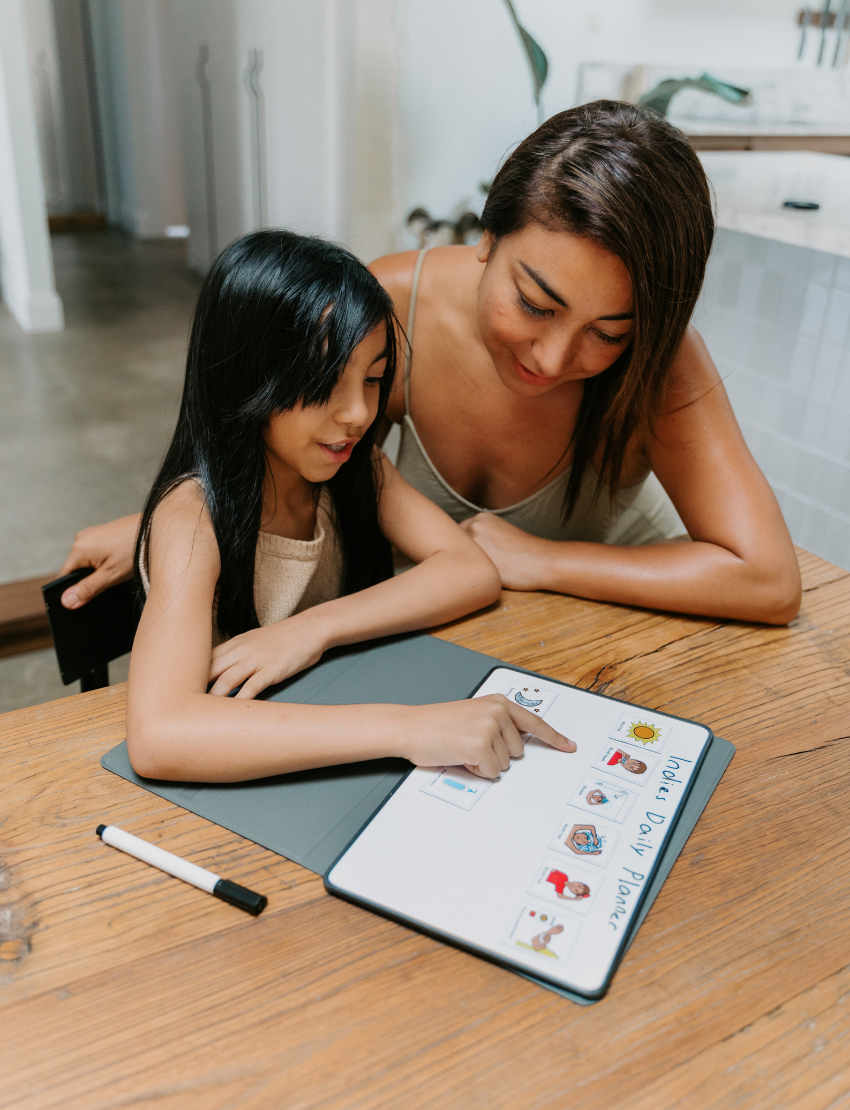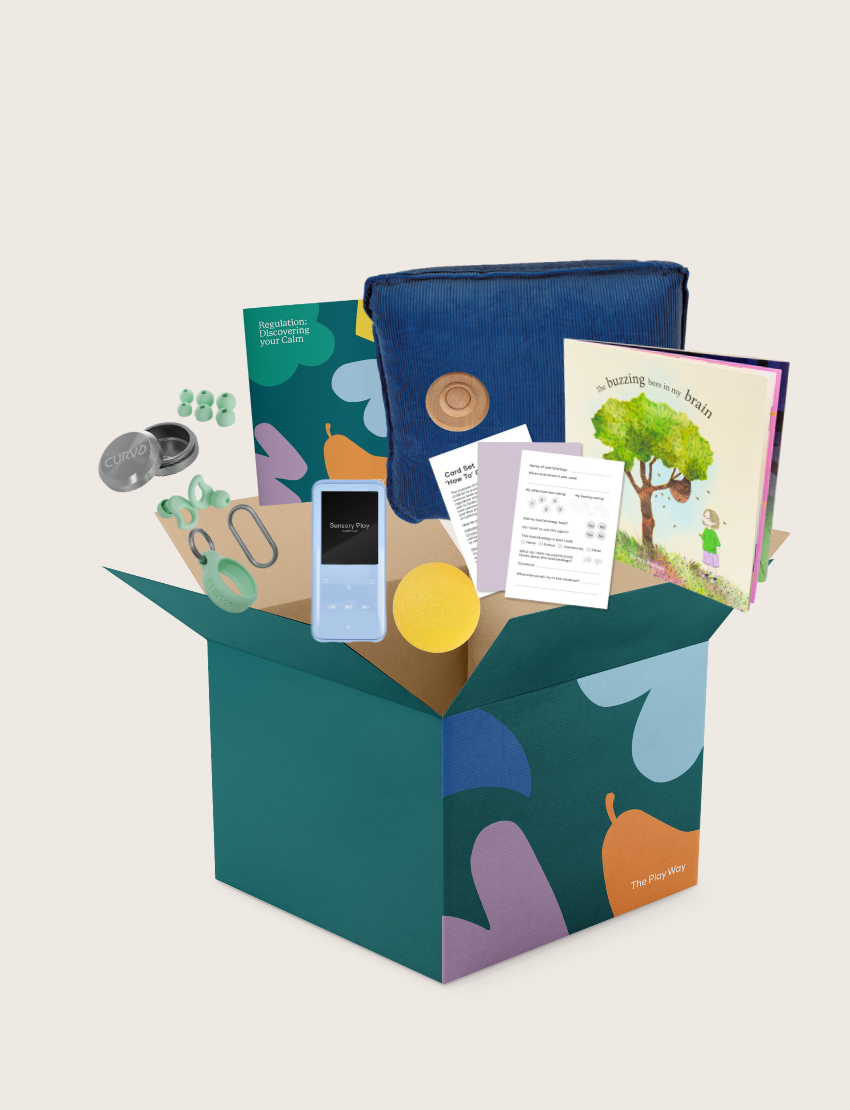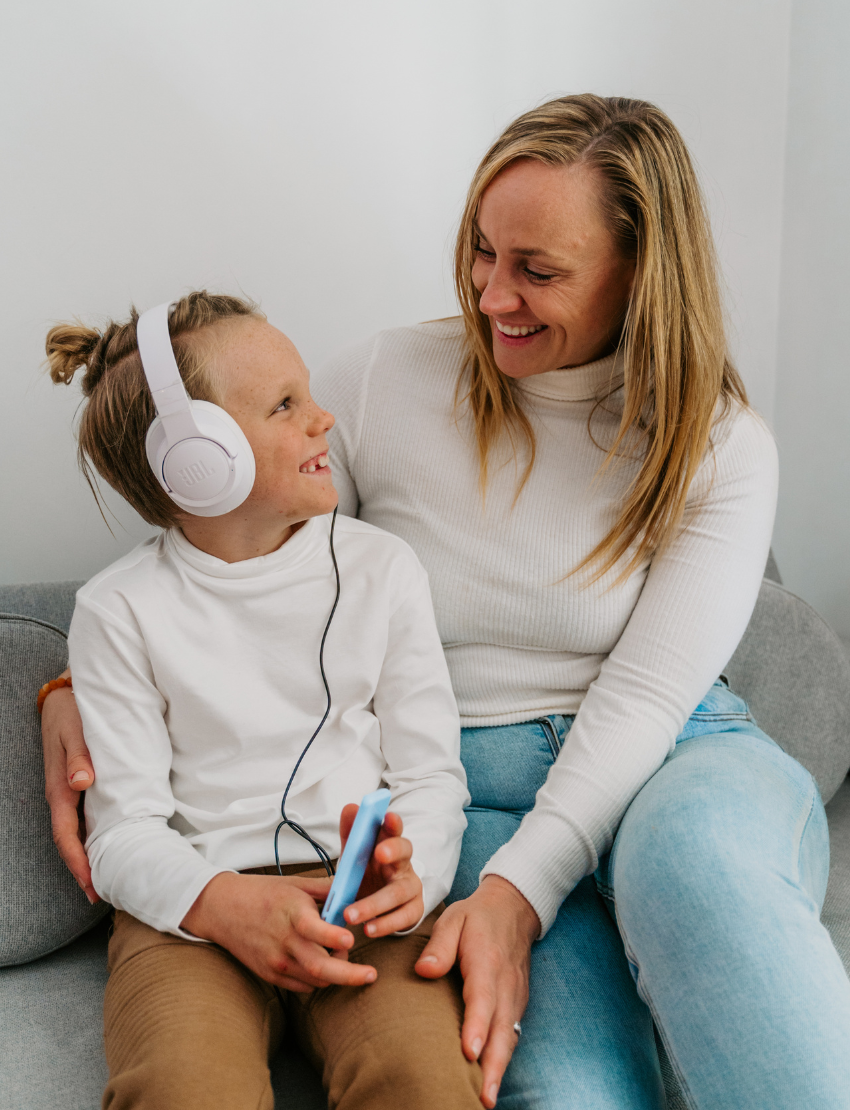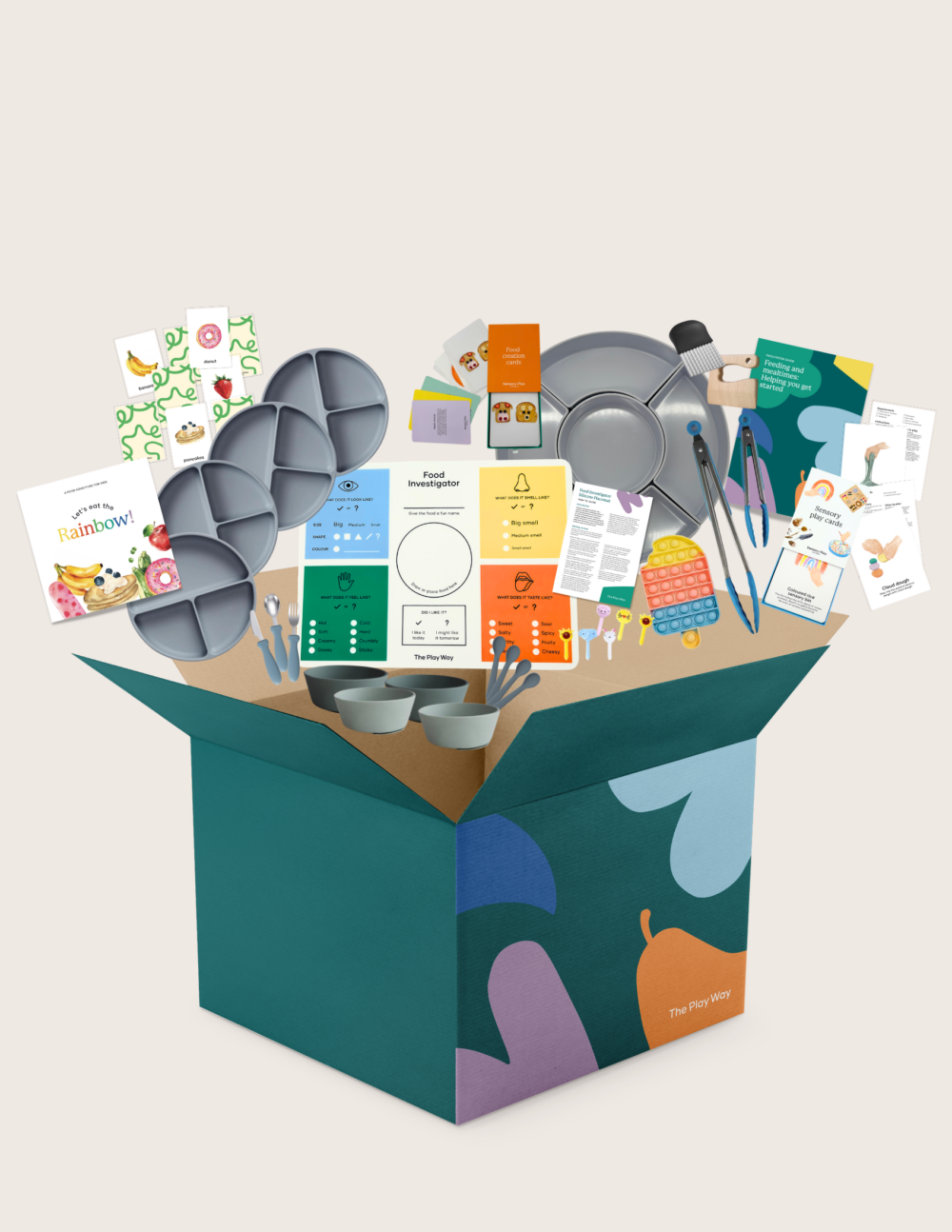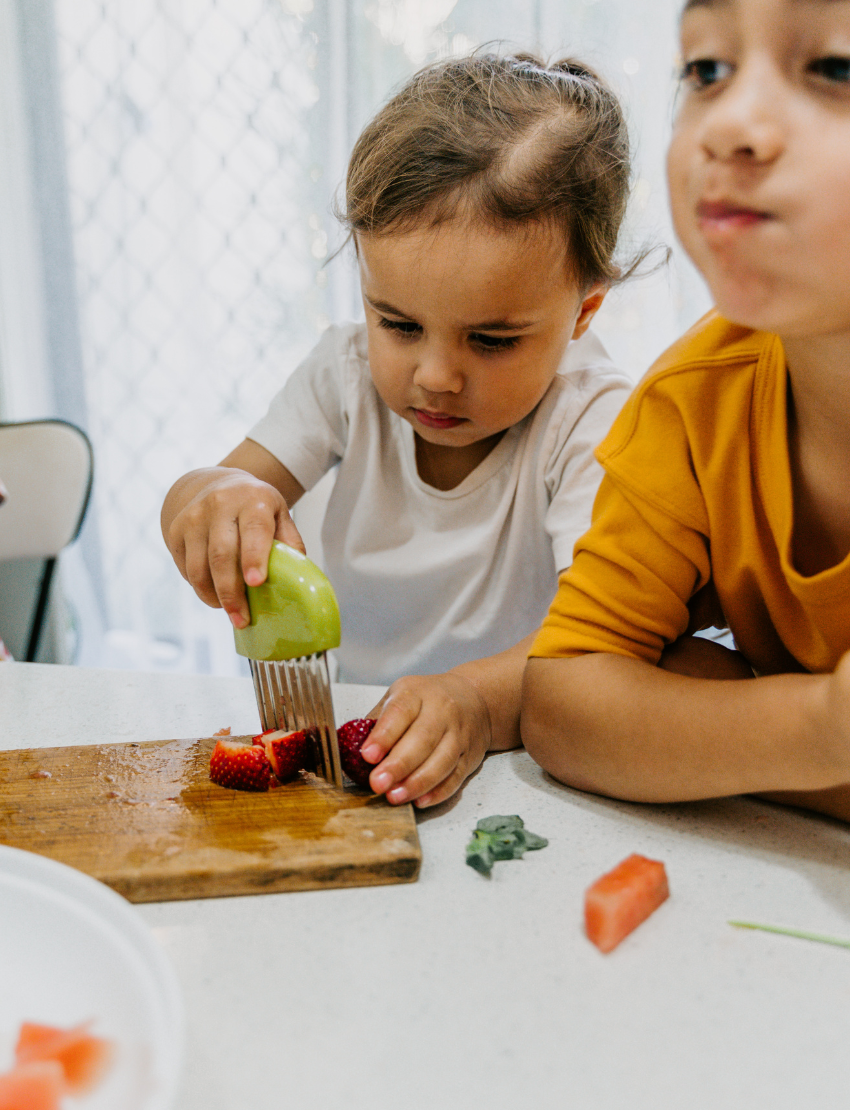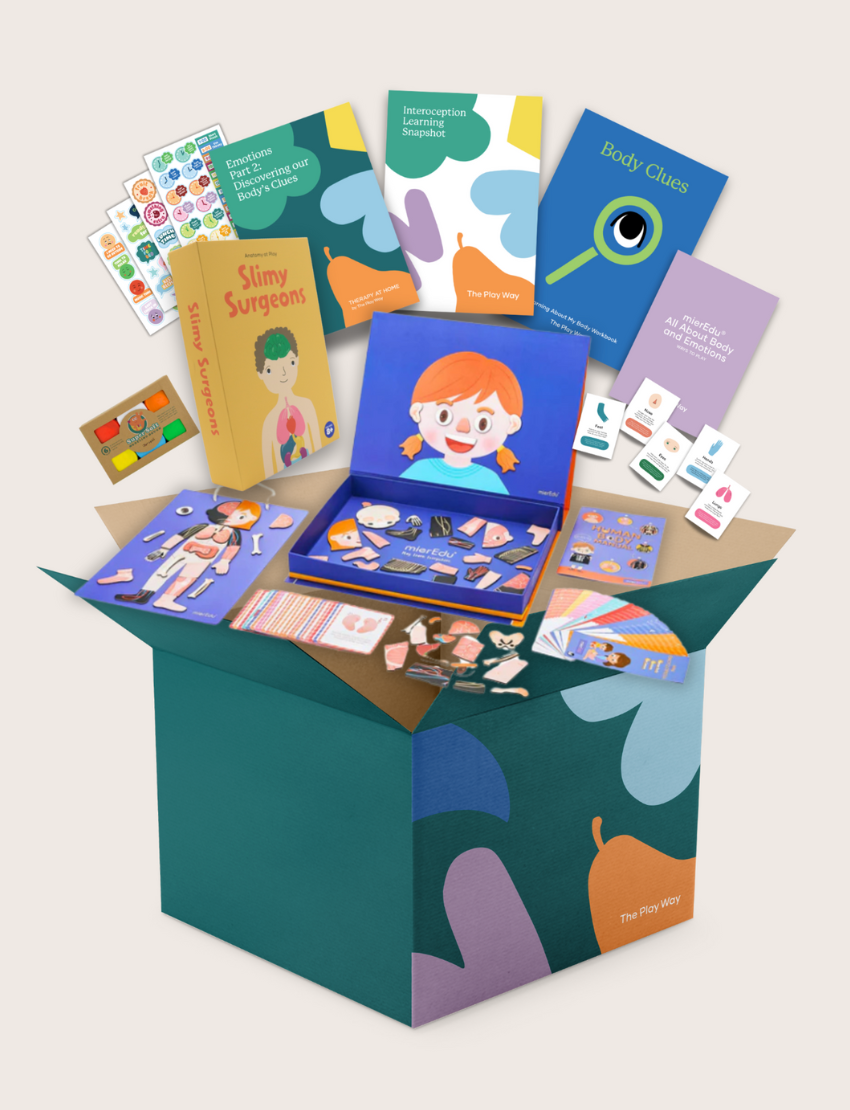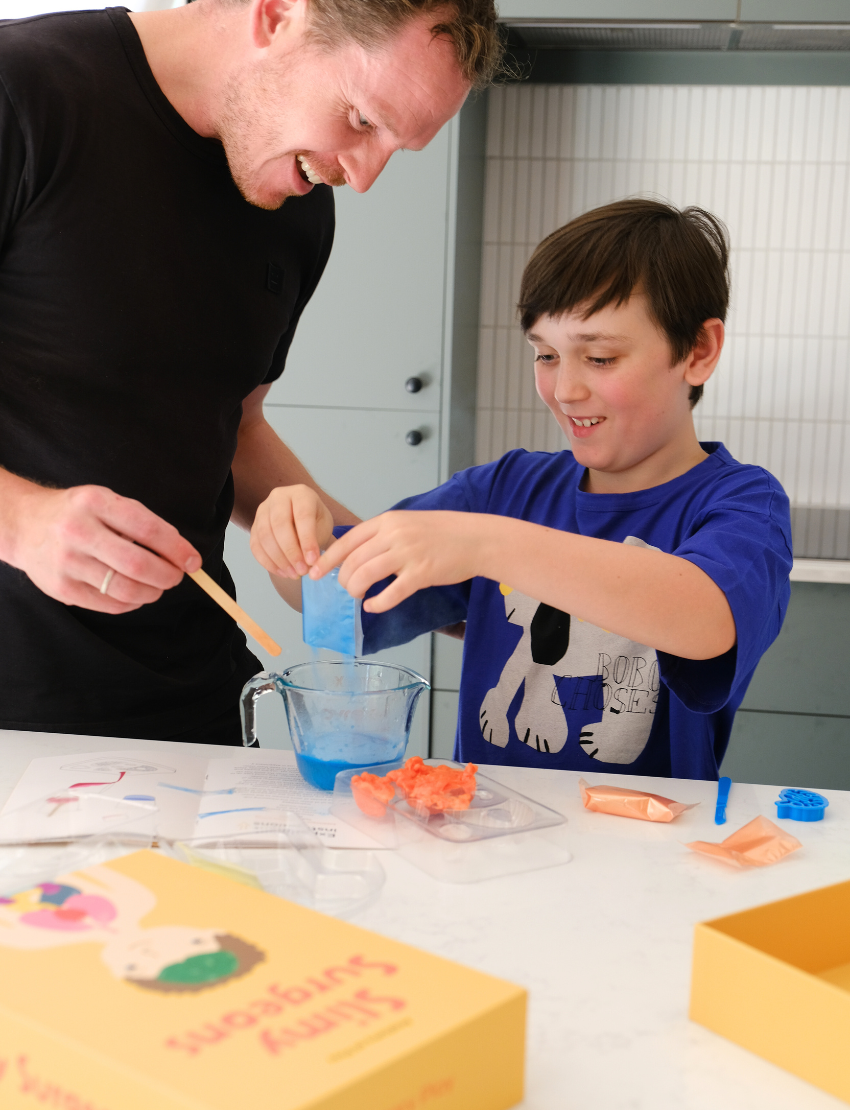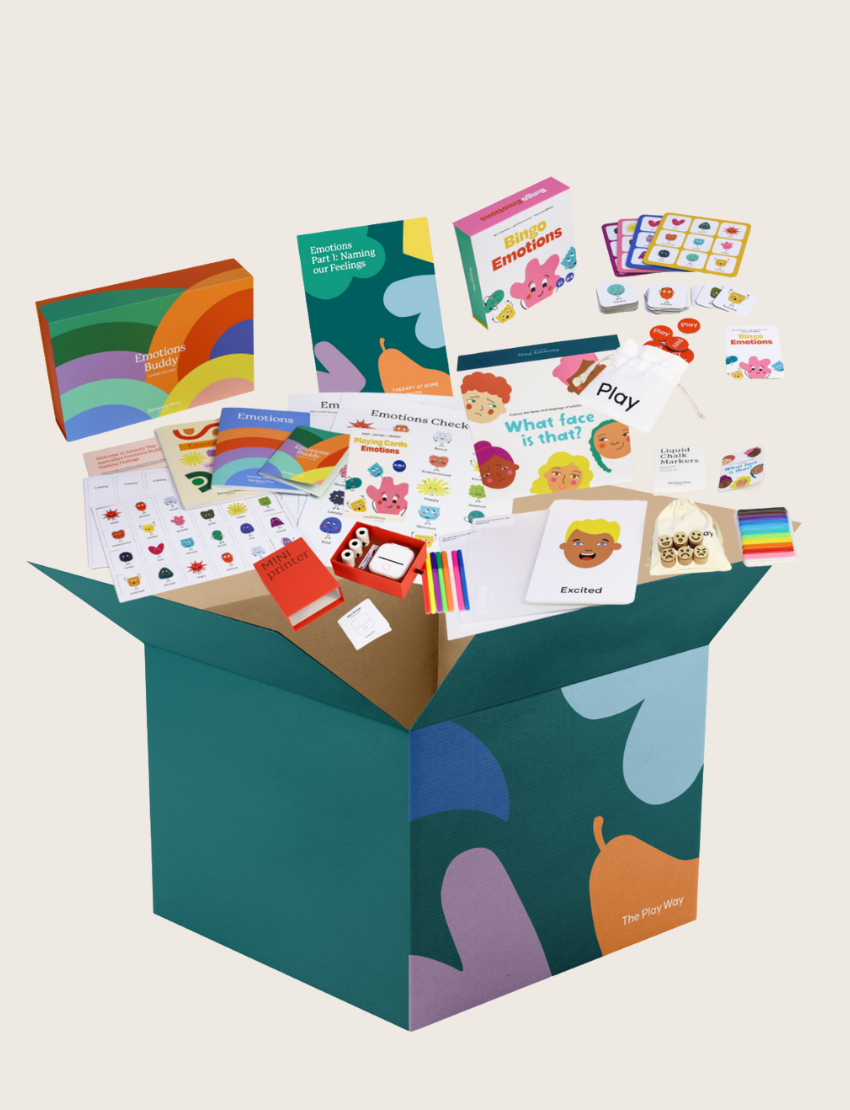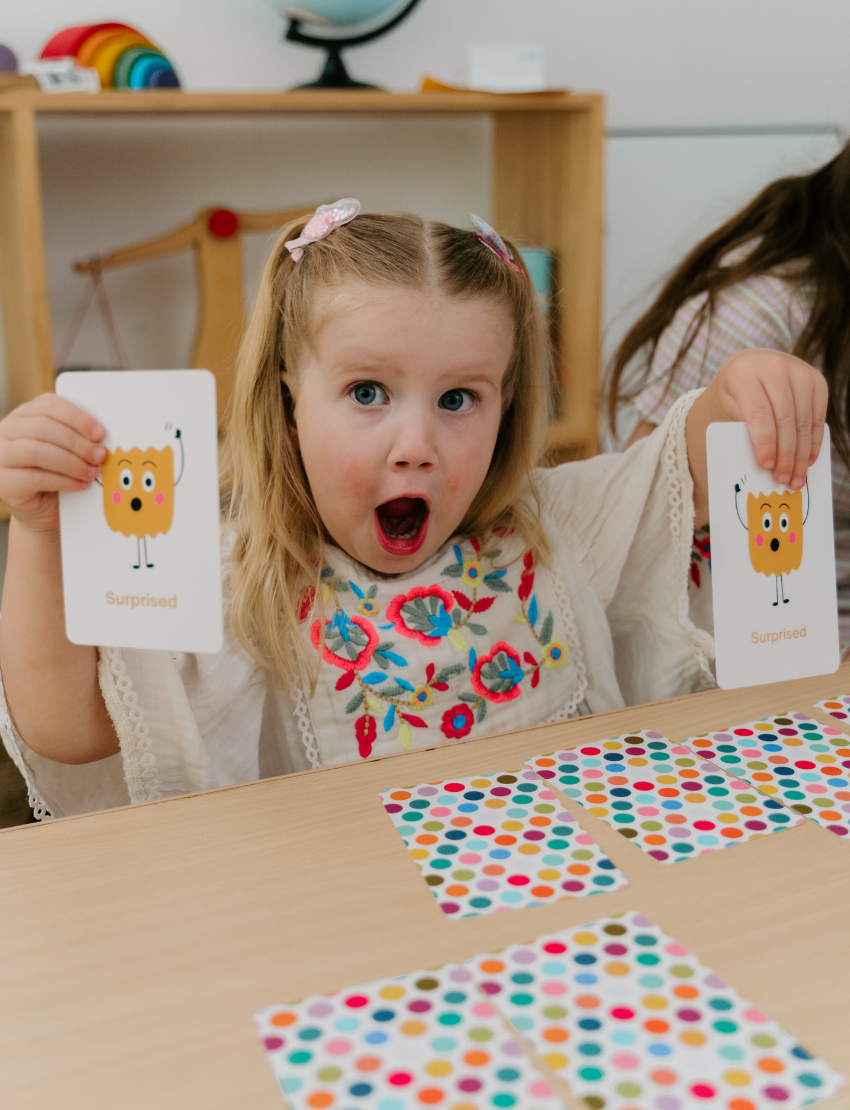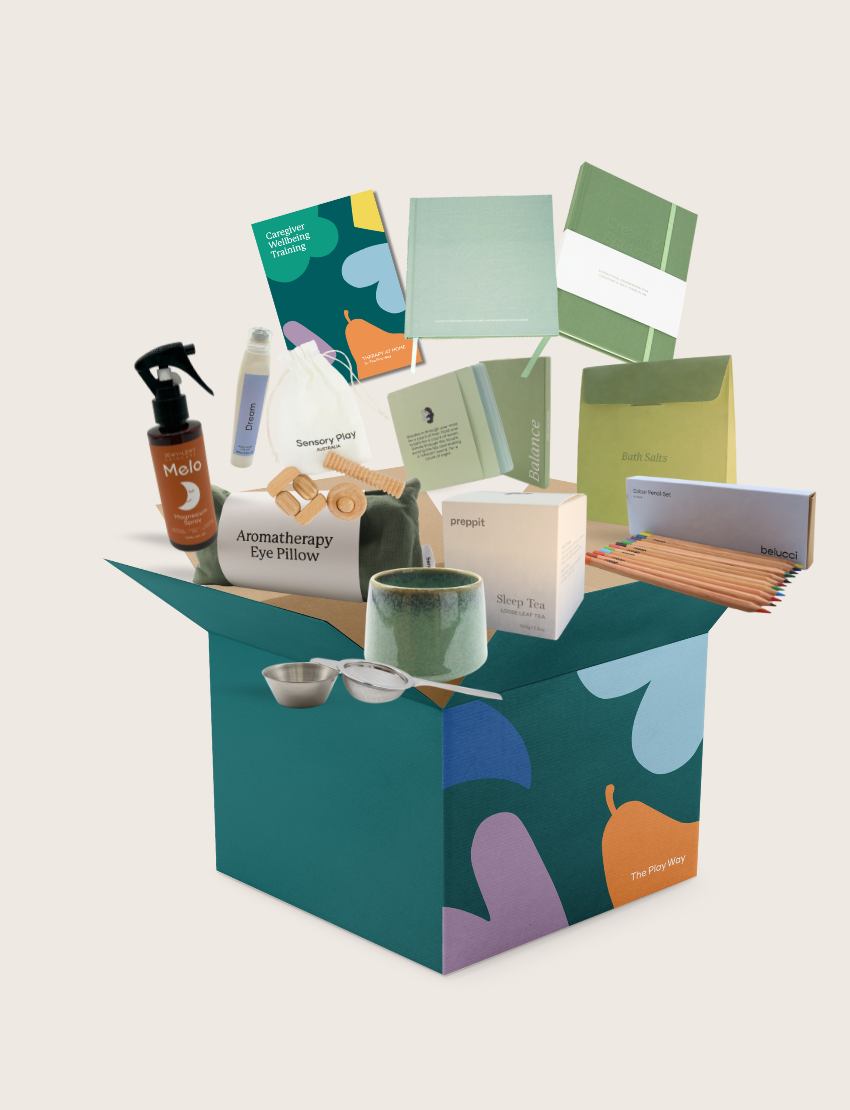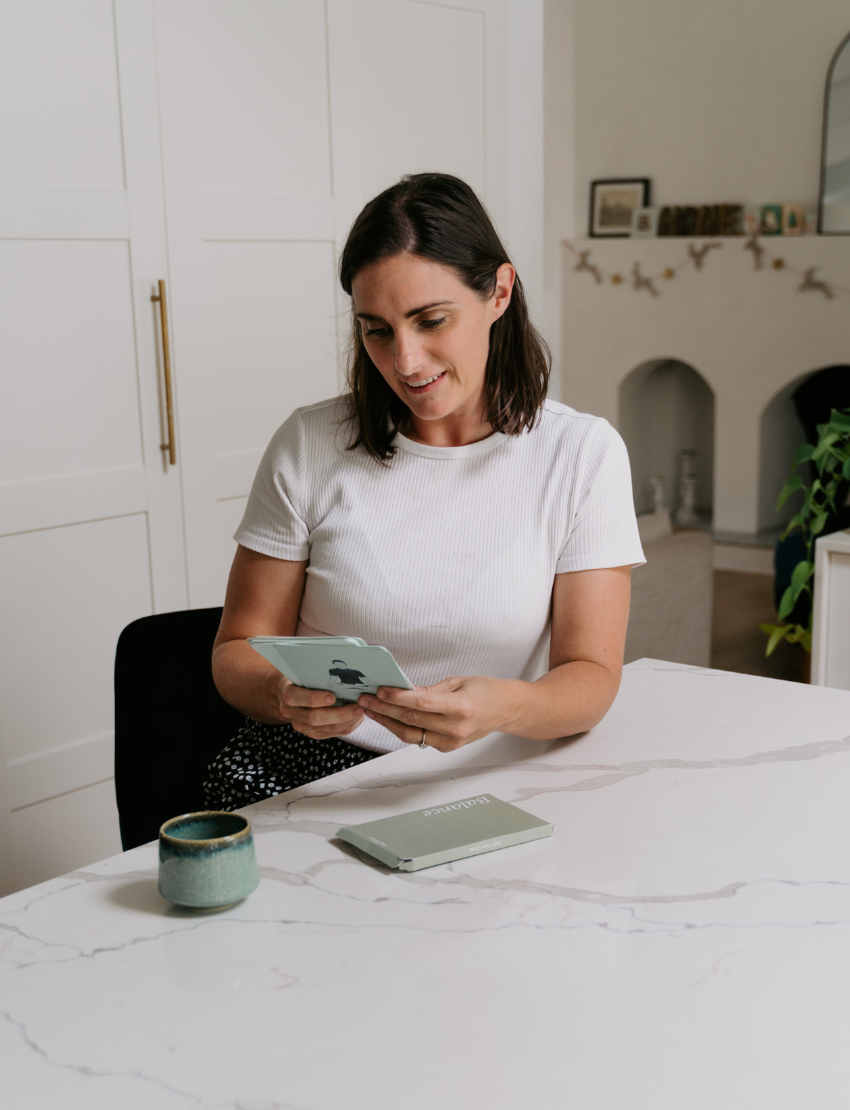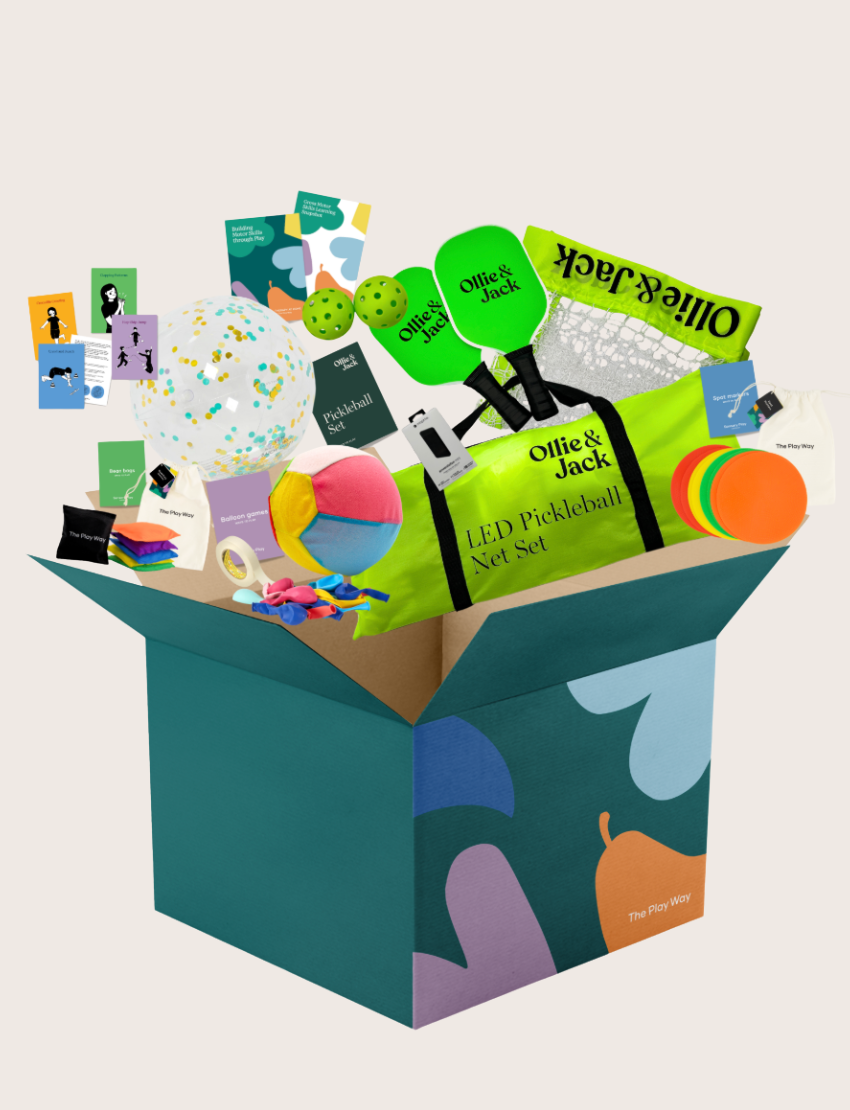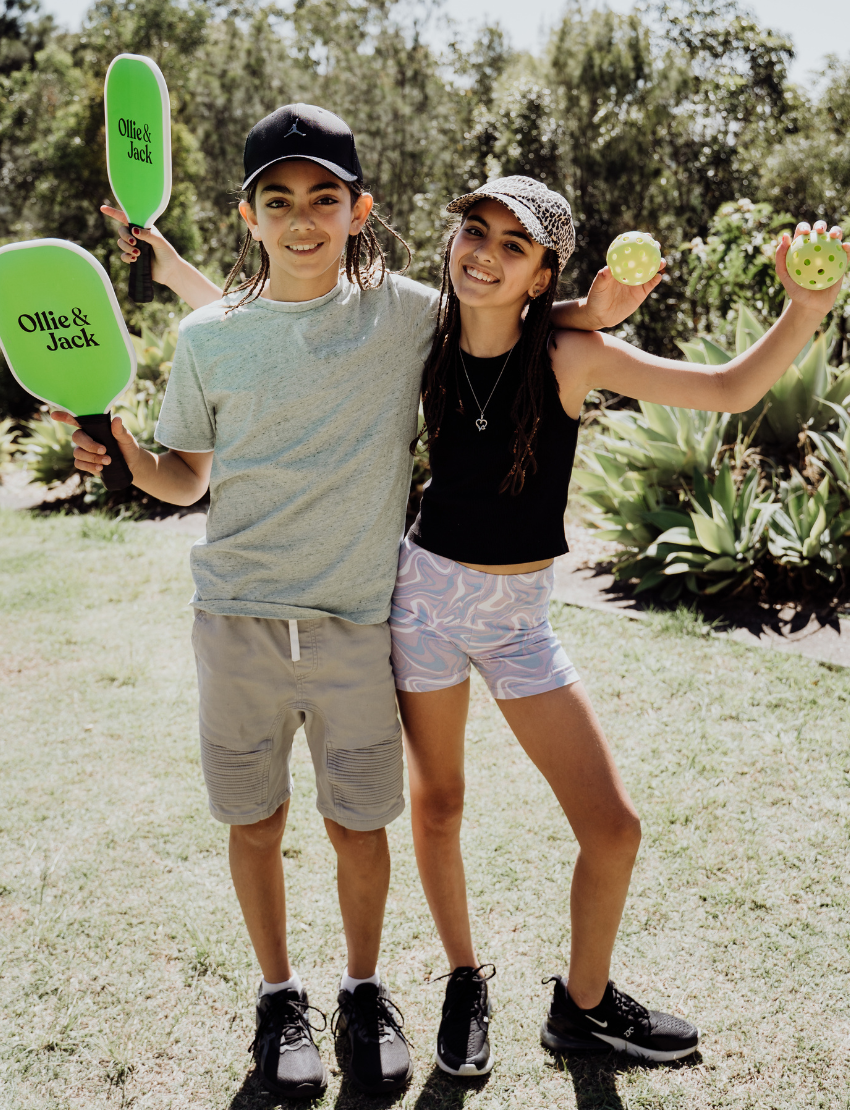Grab access to our ever-growing vault of free digital resources in one place! Sign up to unlock the vault and get instant access to printables, guides, play ideas and much more!
Building Motor Skills through Play Program
The Building Motor Skills Through Play Program has been designed to create everyday, playful opportunities for children to work on foundational gross motor skills. These important skills include balance, hand-eye coordination, muscle strength and endurance, bilateral integration (coordinating both sides of the body), and motor planning and sequencing.
The program aims to support children of all ages and stages to head outside and move their bodies in a fun, play-based way. The toolbox inclusions are accessible and versatile, allowing children to take the lead in solo, partner or group games.
Created for ages 3+

Building Motor Skills through Play Program
ABOUT THE PROGRAM
Skills it can help build
YOUR TOOLS
What's in your toolbox

Gross motor skills learning snapshot

Gross motor skills cards set

LED Pickleball net, bats, ball and ways to play booklet

Spot marker set and ways to play booklet

Bean bag set and ways to play booklet

Balloon cover, balloons, masking tape and ways to play booklet

A SUNNYLiFE inflatable beach ball

Facilitator guide

Video training
Does this sound familiar?
“My child doesn’t like to participate in physical activity because it is hard and they have challenges catching balls and balancing.”
“My child frequently trips and bumps into objects, is still learning to balance on uneven surfaces and confidently jump and skip”
If these challenges sound familiar, you are not alone. It’s exactly why we’ve designed this program.
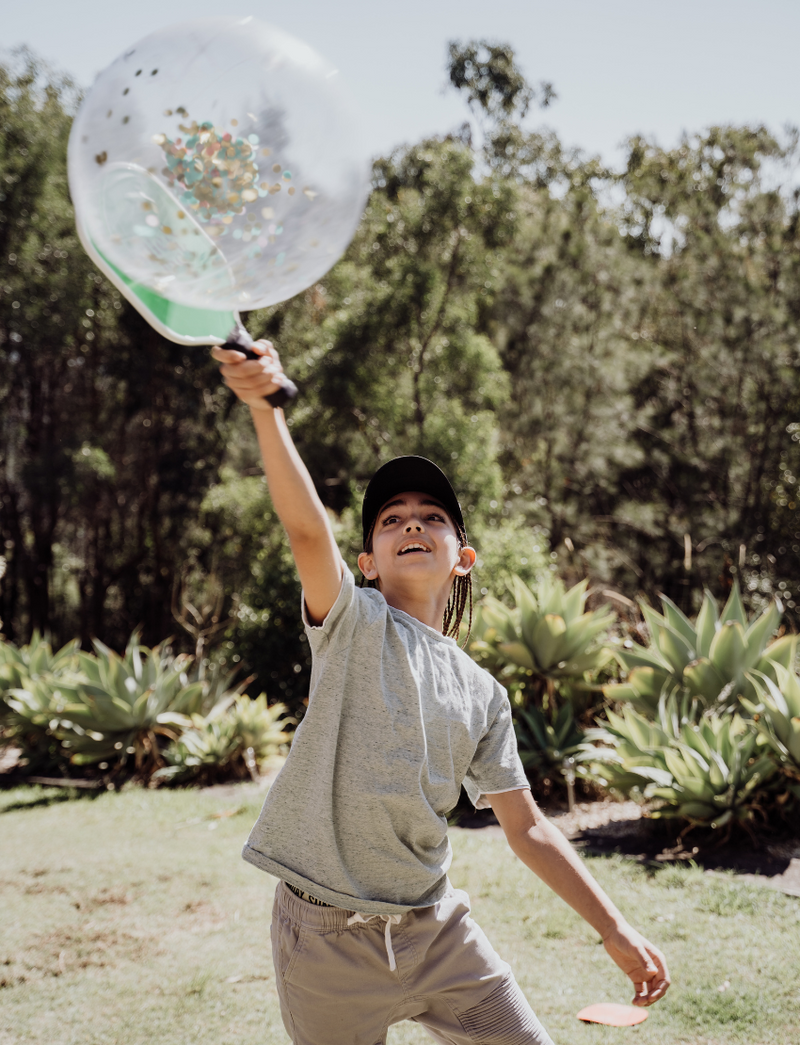
What the program covers
The activities can be adapted to each child’s developmental stage, offering activities that can be scaled up or down based on their abilities. This flexibility ensures that each child can engage at their own level, regardless of whether they are still developing their foundational gross motor skills, or are ready for more complex challenges.
As children engage in game play, they will also have the opportunity to build resilience, improve communication skills, and develop skills for social and cooperative play. Individual games may foster a sense of achievement and resilience as children work towards improving their own personal goals, while partner and group games require teamwork and problem-solving, as well as the opportunity to experience both winning and losing.
Childhood development occurs from the inside out, so in order to support children with academic tasks, we first need to build strength in their large muscles, including their legs and arms. Then, we can lay the foundations for building hand strength, which in turn enhances fine motor precision needed for writing, drawing and manipulating objects.
From this solid foundation, children can then build and refine higher level skills, such as balance, bilateral integration, motor sequencing and planning, and hand-eye coordination. It is through the sequenced development of these skills that we can support children in building the skills required for academic learning.
